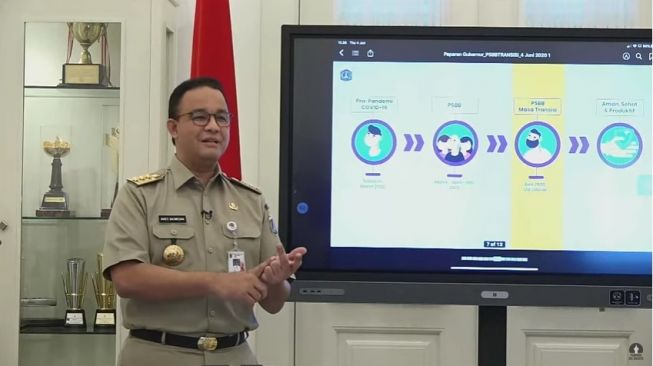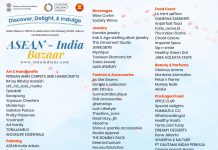The Governor of Jakarta, Anies Baswedan, decided to extend the implementation of Large Scale Social Restrictions (PSBB). However, in the middle of the PSBB extension, Jakarta is now in a transition period towards a new normal order. That is, social and economic activities will be reopened but carried out in stages. Health protocols have also been established to be implemented in a number of sectors during the transition period.
Following are the health protocols per sector that are put in place during the transition period in Jakarta to the New Normal order:
1. Places of Worship
- The maximum number of worship participants is 50 percent of capacity,
- Implement a safe distance (1 meter) between people,
- Washing the place of activity with disinfectant before and after the activity,
- After the place of worship is used for routine activities, closed again,
- Do not use carpets or rugs, every congregation must bring their own prayer mats or prayer equipment,
- Footwear storage is removed, each congregation must bring their own footwear bags.
2. Working Places (Industry)
- The number of employees working in an office is only 50% of all employees, the other 50% are working at home. The shift system can be managed by the company,
- Employees’ working hours are divided into at least two waves (a minimum of a 2-hours gap) to avoid crowds or jostling at the time of arrival, return, and rest, especially companies located in tall buildings,
- All employees and guests must use a mask or PPE as needed,
- Conduct periodic disinfection, especially door and stairs handles, elevator buttons, shared office equipment, and other public facilities,
- Measure body temperature at each entry point,
- Provide hand sanitizers in each entrance area or around the building area or facilities for washing hands with soap and running water,
- Employees in one room must be 1 m apart from each other.
3. Transportation
Private Vehicles:
- Filled with a maximum of 50% percent capacity for non-family passengers and driver,
- For passengers and drivers who have an ID card with the same address (1 Family Card), 100 percent capacity is allowed.
Public Transports
- Filled with a maximum of 50% capacity,
- Passenger lines must be 1 m apart from each other,
- Spraying disinfectants regularly,
- The percentage of public transport services adjusts to main activities.
- For those using an online motorcycle taxi, they must bring their own helmet and masker. Drivers must also follow the COVID-19 health protocols, plus those that have been set by the company.
4. Sport
Outdoor Sport Facilities
- Maximum number of visitors/guests 50% of capacity,
- Visitors/guests are only for local residents,
- Not allowed for children aged 0-9 years, pregnant women, and the elderly,
- Gathering more than 5 people is not allowed,
- Washing hands and measure the body temperature before entering.
Note: Health protocols for indoor sports facilities will be updated later
5. Retail and Shopping Centers
- Maximum number of visitors/guests 50% of capacity,
- Measuring the body temperature before entering the place,
- Tenants that can be opened must be aligned with sectors that are allowed to reopen in phase I,
- Conduct periodic disinfection, especially door and stairs handles, elevator buttons, shared office equipment, and other public facilities.
6. F&B Sectors (Restaurants, Cafes, etc.)
- Maximum number of visitors/guests/users/employees is 50% of capacity,
- Practicing physical distancing between diners, as well as diners and waitress,
- A la carte food serving only (buffet prohibited),
- Encouraging cashless payments,
- Body temperature measurement, hand sanitizer, masker for waitress & cashers must be provided,
- Operating hours are adjusted to the conditions, suggested earlier.
7. Public Markets
- Maximum number of visitors is 50% of capacity,
- Provision of supporting facilities and infrastructure to prevent the spread of COVID-19,
- Encouraging cashless payments,
- Operating hours start at 6 am – 2 pm (may be changed by based on the governor’s decision),
- Different entrance and exit settings.
8. Education
- Teaching and learning activities in schools can not be done during this transition period,
- The 2020/2021 school year begins July 13, 2020, but it has not been determined whether it is permissible to study at school or continue studying at home.
The health protocols during the transition period will be gradually adjusted by looking at the COVID-19 patient numbers in Jakarta and public observance. Stay strong, stay safe, stay healthy!





